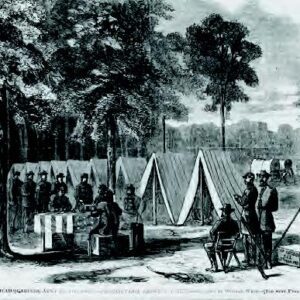July 31, 2024
Preventing Hearing Loss at Work and Home
Hearing protection is especially important for APWU members given the diverse and noisy work environments we encounter. The Industrial Relations Department is committed to ensuring that we keep you informed about hearing hazards and the precautions you can take to protect your hearing.
Below are key points highlighting the importance of hearing protection for APWU members:
- Chronic Noise Exposure – APWU members, particularly those working in mail processing facilities, are often exposed to loud machinery and equipment noise. Prolonged exposure to such noise at work or while doing chores at home can lead to permanent hearing loss.
- Irreversible Damage – Unlike other injuries, hearing loss from noise exposure is often irreversible. Once the hair cells in the inner ear are damaged, they do not regenerate, leading to permanent impairment.
- Effective Communication – In noisy environments, hearing protection helps reduce the impact of loud sounds while allowing workers to hear important communications and alarms. This is crucial for maintaining safety for APWU members on workroom floors.
- Alertness to Hazards – Good hearing is essential for detecting warning signals, approaching vehicles, or machinery that could pose a risk. Hearing protection helps in maintaining the ability to perceive and respond to such hazards.
- Prevent Noise-Induced Stress Levels – Constant exposure to high noise levels can lead to increased stress and fatigue. Hearing protection helps create a more comfortable work environment, reducing stress, and improving overall well-being.
- Improve Focus and Reduce Accidents – Reducing noise levels helps APWU members focus better on our jobs and reduce the likelihood of accidents on and off the job.
- Regulatory Requirements – Occupational Safety and Health Administration (OSHA) regulations mandate hearing protection for workers exposed to noise levels of 85 decibels or higher over an eight-hour period. The Postal Service must comply with these standards to ensure worker safety.
- Prevent Tinnitus and Other Issues – Prolonged noise exposure can lead to conditions such as tinnitus (ringing in the ears), which can significantly affect quality of life. Hearing protection helps prevent these issues, supporting overall health and well-being.
- Long-Term Health – Protecting hearing reduces the risk of associated conditions such as hypertension and cardiovascular disease, which have been linked to chronic noise exposure.
- Support for Aging Workforce – As our APWU members age, susceptibility to hearing loss increases. Using the hearing protection that the Postal Service must provide is crucial to support older employees and maintain their hearing health over time.
- Extended Career Longevity – By protecting hearing, our APWU members can continue to work effectively and safely for longer periods, benefiting both the individual and their families.
- Hearing Protection or Personal Protective Equipment (PPE) You may require hearing protection if noise levels cannot be controlled to below OSHA limits. Hearing protection will be made available if noise levels exceed 85 decibels. Radio headsets are not a substitute for approved hearing protectors. Do not wear them in areas where hearing protection is required, as there is no level of protection provided. Earmuffs offer a comfortable fit and provide effective noise reduction, which is ideal for louder environments or for employees who prefer not to use earplugs for various reasons. Earplugs provide a high level of noise reduction and are suitable for a range of noise environments. This is the most common PPE used by Postal Service employees for hearing protection.
The Correct way to Insert Earplugs:
- Use clean hands, and clean earplugs.
- Pull the top of your ear up and back with one hand to straighten out your ear canal. Insert the earplug straight into the ear canal with your other hand until there is a snug fit.
Using hearing PPE is essential not only for preventing hearing loss, but also for maintaining effective communication, reducing stress, and hearing for your entire lifetime. ■



